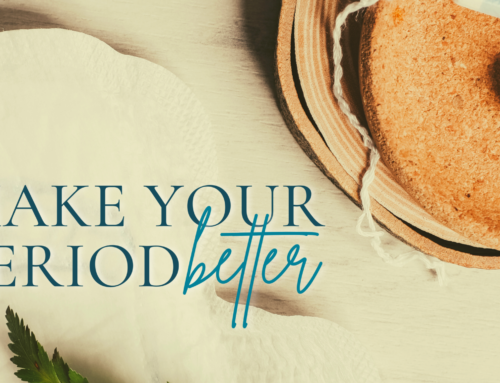 “No one here is going to tell you that you can’t breastfeed your baby, but here are your daughter’s test results,” the doctor told me as I looked longingly at my four week old daughter. She had an IV on the top of her head, was just taken off of oxygen support, and was being nourished by a feeding tube through her nose. We had been in the NICU nearly a week, and without anything by mouth the whole time there, my daughter was sucking furiously on her pacifier, a weak substitution for the satiety that comes from suckling.
“No one here is going to tell you that you can’t breastfeed your baby, but here are your daughter’s test results,” the doctor told me as I looked longingly at my four week old daughter. She had an IV on the top of her head, was just taken off of oxygen support, and was being nourished by a feeding tube through her nose. We had been in the NICU nearly a week, and without anything by mouth the whole time there, my daughter was sucking furiously on her pacifier, a weak substitution for the satiety that comes from suckling.
There was a diagnosed problem with the way my daughter was eating, and couldn’t be discharged until she demonstrated she could eat safely. I went back and forth with the doctor as we discussed a feeding plan. The ones that worked weren’t what I wanted, and what I wanted just wasn’t safe. At the end of a circle of questions, there were only two safe options that would help prevent another hospitalization. My child was unable to drink breastmilk. If I wanted to take her home, she would either need a feeding tube, or a special formula.
Having a fourth baby is daunting when the other three are still quite young, however, the fourth time around I had a comfort level with the demands of caring for a baby. “I’ve changed lots of diapers, lost lots of sleep,and nursed for hours on end. It’s going to be hard for awhile, but I’ve got this,” I thought to myself.
And then, something wasn’t quite right. It happened so gradually that I wasn’t immediately alarmed; a different child meant different challenges, or so I thought. It was finally the fresh eyes of my mother who urgently told me, “She needs to see a doctor right now.” Then began a whirlwind week that started with a hospital admission, then an ambulance run to the Neonatal Intensive Care Unit.
Finding a new groove with making , feeding, and washing bottles at home now, the impact of how mothers feed their babies has hit me square in the face. You see, I’m a breastfeeding mother. I nursed my three sons on demand for as long as they allowed me. I nursed anywhere, anytime. Truck stops, restaurants and a baseball stadium have all been accompanied by me, my nursing baby, and the telltale blanket to cover us. Breastfeeding my children is so much of how I mother that it is who I am as a mother.
I’m not nursing this baby. I know how to nurse and I make enough milk. I’ve persevered through mastitis, thrush, engorgement, and all sorts of other breastfeeding nightmares that can accompany nursing mothers at one point or another. But this time I can’t, and not for lack of desire or convenience. When drinking breastmilk, instead of my daughter sucking and swallowing like my other babies did, she inhales, or aspirates it, which then causes pneumonia and respiratory problems. Before her, I hadn’t heard of this problem. And, while it can occur in isolation, it can also be a symptom of many underlying, more serious conditions, which, we discovered, is the case for my child.
It’s heartbreaking not to nurse my baby, and the views on breastfeeding have shifted so much in our generation that to mix and bottle feed in public can seem embarrassing. How odd, I’ve thought, that I can confidently expose my breasts while nursing in public, but bottle feeding is what causes me to blush. Mothers have been told, and rightly believe that “Breast is Best,” and support for breastfeeding is practically public policy. I agree. However, feeding my baby formula has changed my own preconceived notions, and forced me to take a honest look at judgments I had about bottle feeding.
First, the way we feed our children has nothing to do with how much we love them. We hear a lot about bonding and attachment, and how breastfeeding encourages it. Because breastfeeding requires so much personal contact, I believe that a breastfeeding mother is often naturally attached to her child. However, that doesn’t correlate to a bottle-feeding mother being less attached. Each of my four children have been deeply attached and loved by both their mother and father. My love for my daughter is no less diminished because she is not breastfed.
Secondly, breast or bottle-feeding doesn’t make a mother “good” or “bad.” While the qualities of a good mother are difficult to define, we often know her when we see her. Breastfeeding is a sacrificial act. Mothers use their bodies to carry, birth and then nourish their child. This is natural and beautiful, even though it requires the mother to give, seemingly, all of herself to her child. Where I think many women have gone astray though, is the perception that they are only as a good as the degree to which they sacrifice themselves. Labeling a mother as “good” or, “not quite as good” on the basis of how much they martyr themselves is a very sad societal pendulum swing.
Third and finally, is that bottle-feeding mothers, just like breastfeeding ones, need support and encouragement. If a mother is not breastfeeding, she shouldn’t need to answer to the public for it. The last thing a mother of an infant needs is to defend the way she feeds her child. Before my situation, I was admittedly biased against women who didn’t breastfeed. I was unaware there was any such thing as a “medical” reason women, or babies, were unable to breastfeed. I was, in a sense, judgmental toward bottle-feeding mothers, subconsciously thinking they had chosen an easier, less-ideal road. Since that time, I have heard from many mothers who because of mechanics or circumstance haven’t been able to breastfeed. They often feel diminished and isolated.
I’m thankful for my situation in many ways. I have a safe way that my child can be fed. But also, because I was humbly proven wrong in my own assumptions and can, hopefully, be a support to both breastfeeding and bottle-feeding mothers.
Breastfeeding is beautiful. It’s natural, bonding, and healthy for both mother and baby. I can’t help but smile at mothers while they nurse. I’ve grieved to an extent that I’m not able to provide this to my daughter, but then she smiles and I snuggle her close. I smell her head and smother her with kisses. She is loved. When it comes down to it, I’ll do whatever I need to do to feed a child. Anything we might lose from not breastfeeding can be made up for with love.



Thank you, thank you, thank you for this. I was unable to breastfeed because of a constellation of problems (PCOS, PPD, and tongue-tie), and I too have experienced the embaressment of mixing up a bottle in public. The only other women I knew who didn’t breastfeed had adopted children.
I am so grateful to Guiding Star for finally posting something that acknowledges that while breast is best, it’s the love that a child receives in being fed that matters just as much (if not more) than the form of the food.
Thank you! I’m so, so happy to share my experience and have a similar journey to share and help support other mothers. There is ALWAYS something to feel guilty about as a mother, and in a lot of ways it’s not fair because it keeps us from being a better mother. We need to love and care for our babies, and do the absolute best that we can. Take care!
Again, thank you for this perspective, Mallory! Prayers for you and your little one.
Thank you, Jess! And I’m always appreciate of the prayers for my little MM.